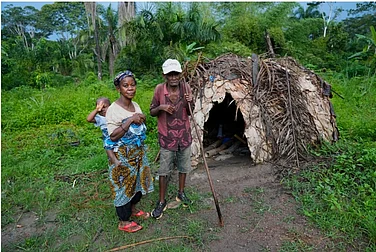India has voiced its opposition to regulating the production of primary plastic polymers, citing concerns about potential impacts on development rights. This position was articulated during the closing plenary of the fifth meeting of the Intergovernmental Negotiating Committee (INC), tasked with drafting a legally binding global treaty to combat plastic pollution.
The weeklong negotiations, held in Busan, South Korea, ended without an agreement, highlighting the sharp divisions among participating nations. Discussions aimed to address critical issues such as capping plastic production, eliminating harmful chemicals, and financial provisions for implementing treaty obligations. However, consensus remained elusive, prompting a decision to reconvene in 2024.
India라이브 바카라 representative, Naresh Pal Gangwar, emphasized the country라이브 바카라 stance, asserting that the treaty's focus should be limited to tackling plastic pollution and not extend to regulating polymer production. He stressed that such measures could undermine the development rights of nations, a key concern for India and other developing countries.
“India would like to state its inability to support any measures to regulate the production of primary plastic polymers as it has larger implications in respect of the right to development of member states,” Gangwar stated during the plenary.
India also raised concerns about several provisions in the draft treaty, suggesting that some articles could have unintended trade implications. The country opposed the inclusion of timelines for phasing out plastics at this stage, arguing that such commitments required further deliberation and clarity.
Additionally, India advocated for the treaty to account for the diverse circumstances and capacities of nations. Gangwar called for the establishment of a dedicated multilateral fund to assist developing countries with the financial and technological requirements of treaty compliance. He emphasized that financial and technical assistance, including technology transfer, would be essential for the effective implementation of the treaty라이브 바카라 provisions.
India also sought assurances that all countries would have the opportunity to include their perspectives in future discussions. Gangwar requested clarity in the draft text to ensure alignment with other international agreements and avoid unnecessary overlaps.
The Busan talks underscored the divide between nations prioritizing reductions in plastic production and those focusing solely on managing plastic waste. While over 100 nations supported capping production and addressing harmful chemicals in plastics, resistance from countries with significant plastic and petrochemical industries, including India, Saudi Arabia, and the United States, prevented a consensus.
The failure to finalize the treaty has delayed a crucial step in addressing the global plastic pollution crisis. With plastic production projected to increase by 70% by 2040 without significant policy interventions, the need for a robust, enforceable agreement remains urgent.
As countries prepare for the next round of negotiations in 2024, bridging the gap between differing priorities will be critical to creating a treaty that effectively addresses the multifaceted challenges of plastic pollution while respecting the developmental needs of nations. The outcome will shape the global approach to one of the most pressing environmental issues of our time.
(This article is a reworked version of a PTI feed)














